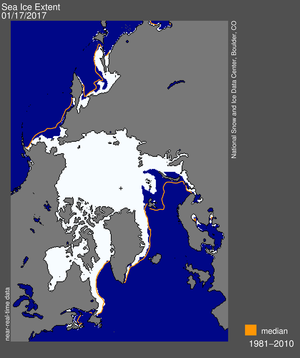I’ve just returned from the IPY2012 conference in Montréal, which was a very interesting mix of science, culture, and politics. On the Science side, there were lots of great presentations wrapping up years of polar research. I spent a lot of time in the Polar Microbes, Polar Marine Ecosystems, and Polar Terrestrial Ecosystems sessions, but also branched out and watched talks on other topics like contaminants, remote sensing, and anthropology. On the culture side, there were some great performances by aboriginal artists like ArtCirq — the Arctic Circus and Beatrice Deer.
Finally, the last part of the conference was political. Speeches by QC Premier Jean Charest and Minister of Aboriginal Affairs and Northern Development John Duncan had the whole conference center in a lockdown the first day. They made me realize that the theme of the conference, “From Knowledge To Action”, meant something very different to them than to most of the scientists I spoke with. None of the politicians mentioned news like the Canadian withdrawal from the Kyoto Protocol, the ongoing student strike against rising tuition and the breaking of a decades-old social contract in Quebec, the firing of 60 Environment Canada scientists, the closing of the Eureka High Arctic Research Station in Nunavut, or the muzzling of Canadian Government scientists at this very conference. Instead, they spoke of rapid development in the Northern regions, especially Charest’s Plan Nord, claiming that he will protect 20% of the pristine northern wilderness (wow! 20%) over the next 25 years (what happens to the other 80%?). John Duncan insisted that development brings jobs and prosperity to northern communities (oh really? since when?). During an “Action Forum” entitled “Creating the Conditions for Arctic Offshore Oil and Gas Development” two oil industry representatives (for Shell Oil and Chevron) earnestly claimed the same thing, and noted that there had been ‘no significant spills’ in the Arctic after decades of exploration (since, technically, Prince William Sound — the site of the Exxon Valdez spill — was only at 61N and not strictly ‘Arctic’). Many, many, many community member comments later, I was simultaneously heartened and dismayed by the topic. It became exceedingly clear that oil and gas development will proceed whether the science is there or not. At one point the Shell spokesman claimed that we have “a very good holistic understanding of the ecosystem” in the Chukchi/Bering Sea region. I would beg to differ, especially as regards the microbial ecosystem, which will prove even more critical to remediation after a spill than the animal ecosystem that relies upon it.
I was very glad when one woman asked the question I had wanted to ask myself (paraphrased): “There has only been discussion of WHEN, not IF, development should occur. Shouldn’t we question the societal necessity of exploration and development of this critically endangered region, especially considering the irony that the use of fossil fuels is the primary contributor to its imminent demise?” Professor Peter Wadhams succinctly explained it thus (paraphrased): “If this were a sane world, we wouldn’t drill in the Arctic.”
Tags: arctic · conference · scienceNo Comments



0 responses so far ↓
There are no comments yet...add one by filling out the form below.